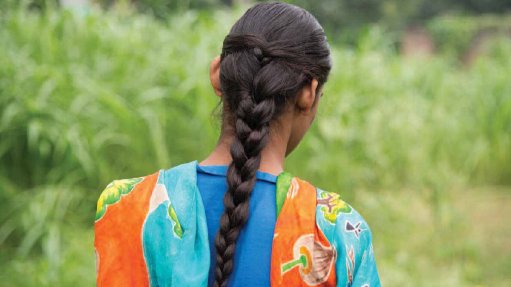
In June 2013, Chandra, a 12-year-old girl with cerebral palsy, was kidnapped, raped and left bleeding in a field near her home in West Bengal state, India. Chandra was unable to speak, sit, stand, or walk independently, so she could not call for help or go home. After several hours, some villagers found Chandra in the field. She died a few months later due to health complications.
Women and girls with different disabilities face high risk of sexual violence in India. Those with physical disabilities may find it more difficult to escape from violent situations due to limited mobility. Those who are deaf or hard of hearing may not be able to call for help or easily communicate abuse, or may be more vulnerable to attacks simply due to the lack of ability to hear their surroundings. Women and girls with disabilities, particularly intellectual or psychosocial disabilities, may not know that nonconsensual sexual acts are a crime and should be reported because of the lack of accessible information.
Access to justice is particularly difficult for women and girls with disabilities largely due to the stigma associated with their sexuality and disability. As a result, they often do not get the support they need at every stage of the justice process: reporting the abuse to police, getting appropriate medical care, and navigating the court system. As former chairwoman of the National Commission for Women, Lalitha Kumaramangalam, said in December 2015: “One of the biggest challenges for women [with disabilities] is access [to services], not just physical but access across the board.”
After the fatal gang rape of a young woman in Delhi in December 2012, sexual violence against women in India came under a global spotlight. The government responded to the public outrage and civil society protests by strengthening laws—known as The Criminal Law (Amendment) Act, 2013 (the 2013 amendments)—against sexual violence, which it declared its intent to enforce.
The amendments include several provisions to safeguard the rights of women and girls, including those with disabilities, and facilitate their participation in the investigative and judicial processes. For example, women and girls with disabilities have the right to record their statement with police in their home or a place of their choice, and the right to assistance by an interpreter or support person when the complaint is recorded and during trial. The protections also apply to women who are seriously physically hurt or who have a temporary disability.
This report, based on 17 cases of sexual violence against women and girls with disabilities, comes five years since these amendments were adopted, and follows Human Rights Watch’s November 2017 report “Everyone Blames Me”: Barriers to Justice and Support Services for Sexual Assault Survivors in India, which found that rape survivors still face significant barriers obtaining justice and critical support services because legal and other reforms have not been fully realized.
Report by Human Rights Watch